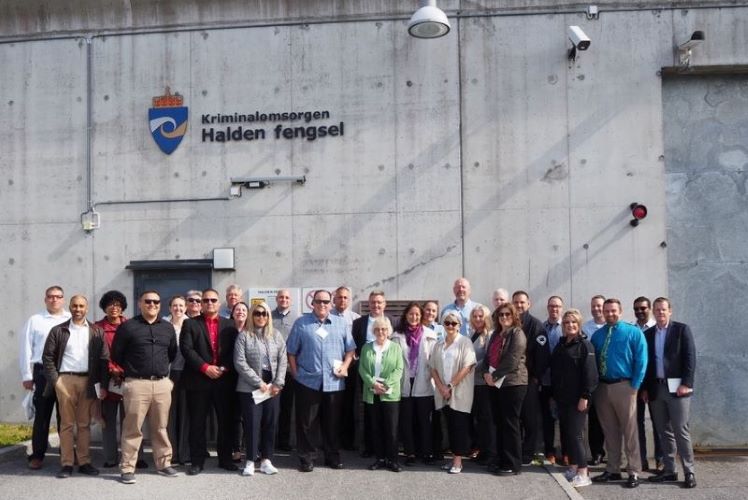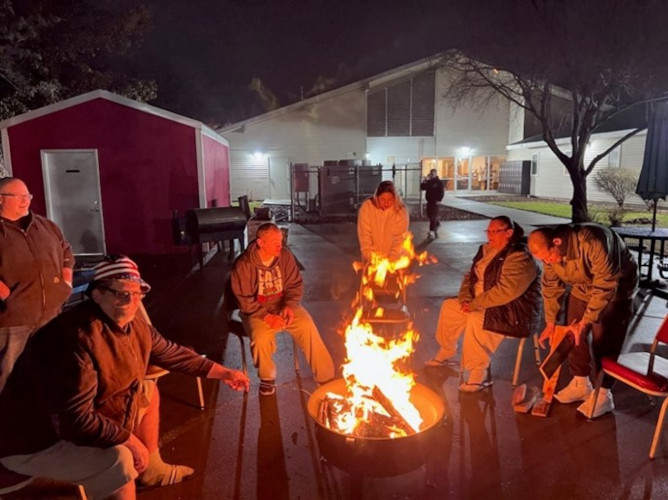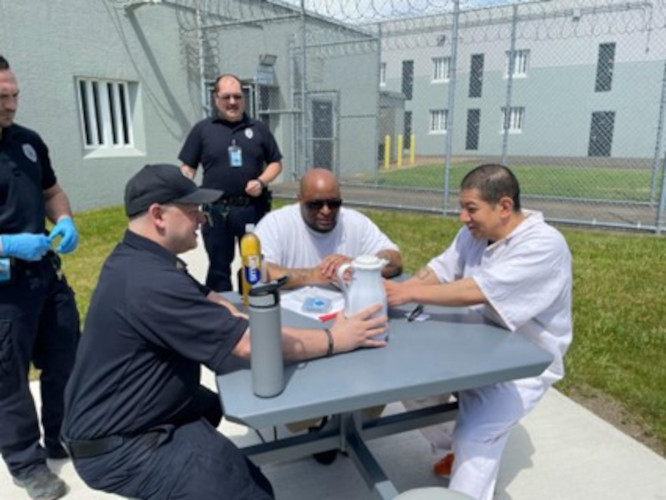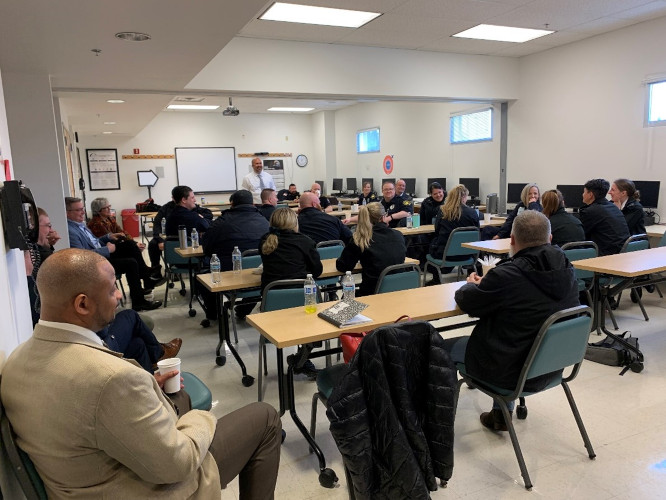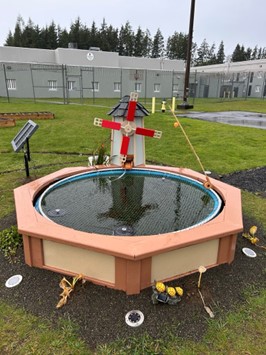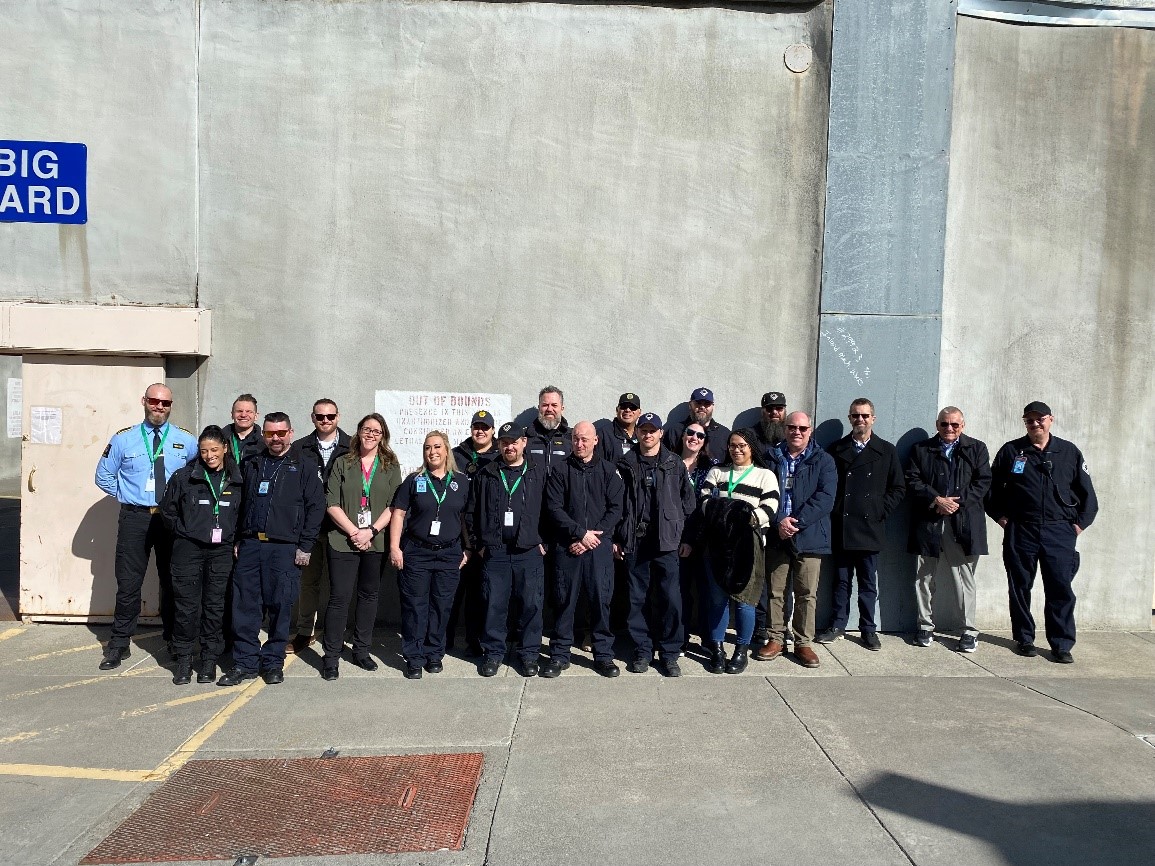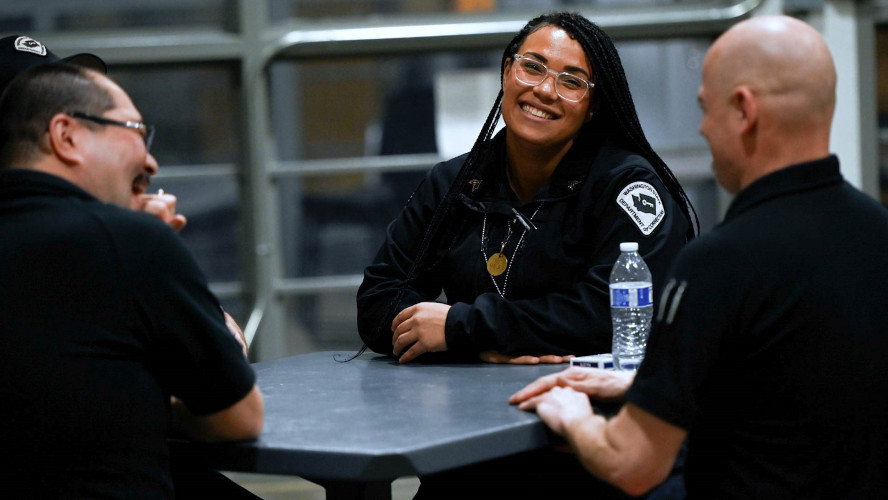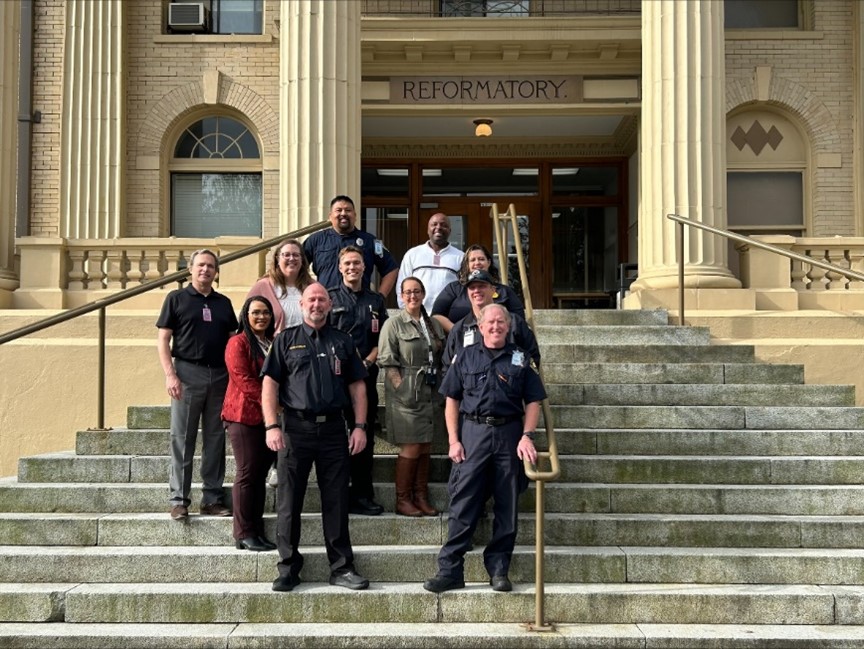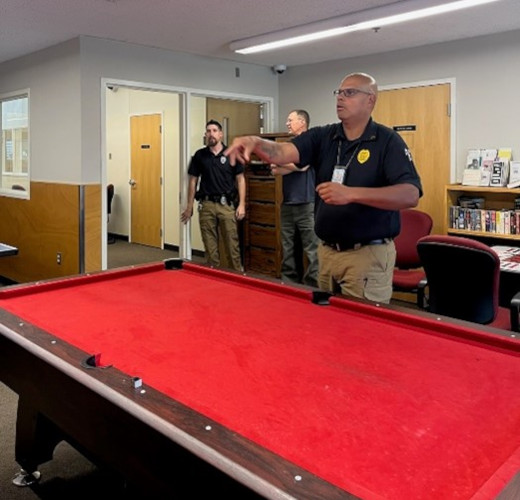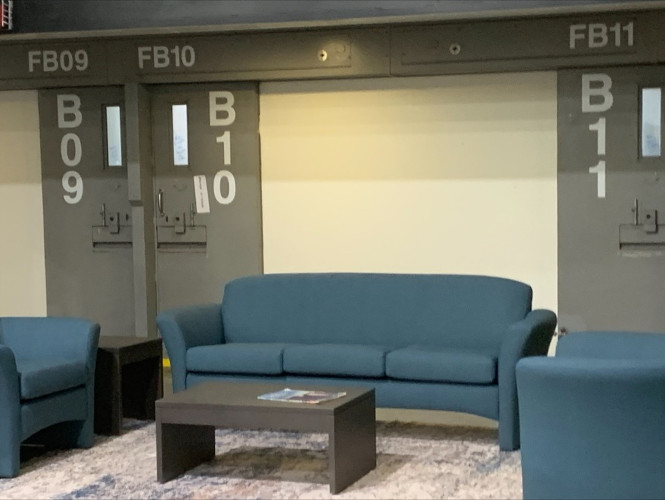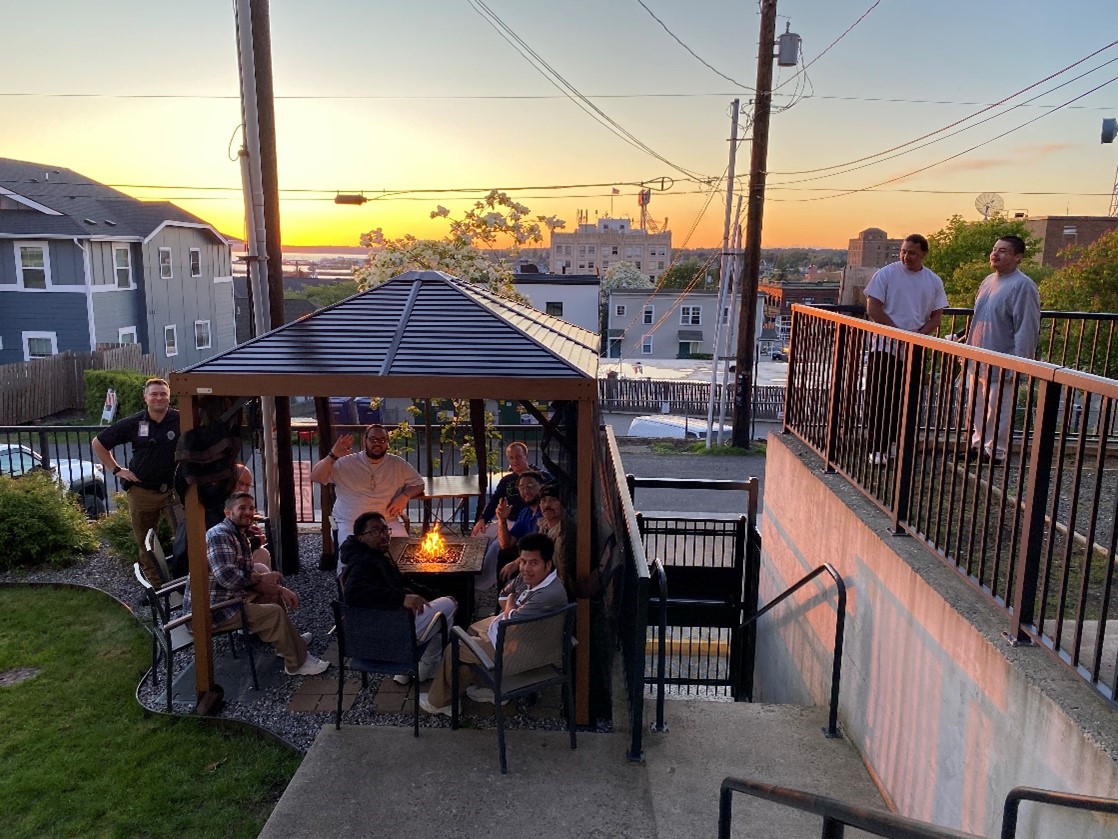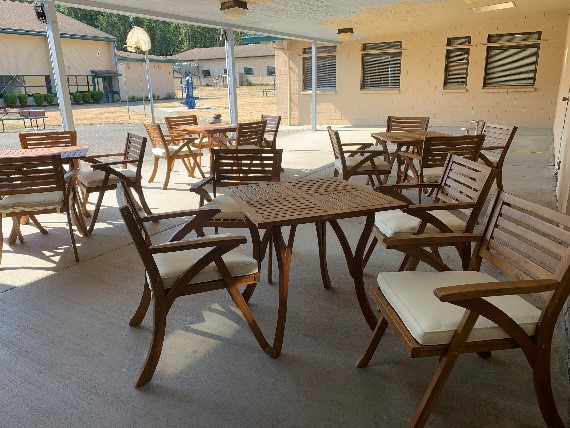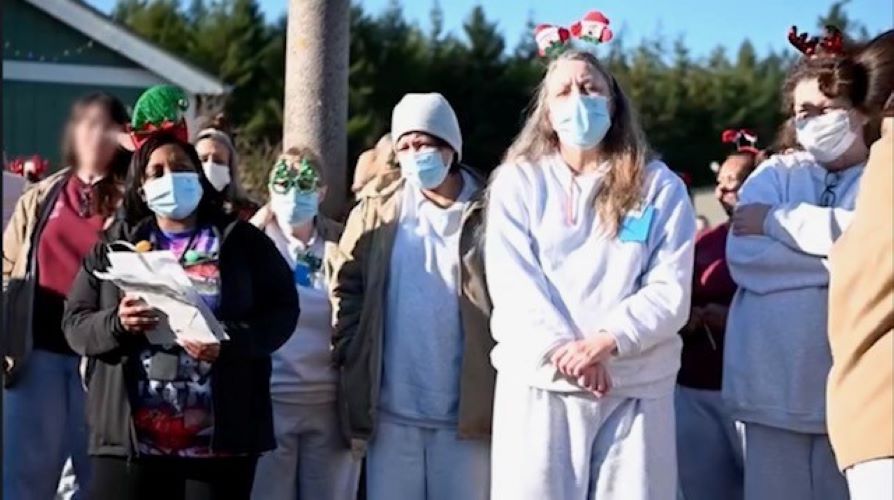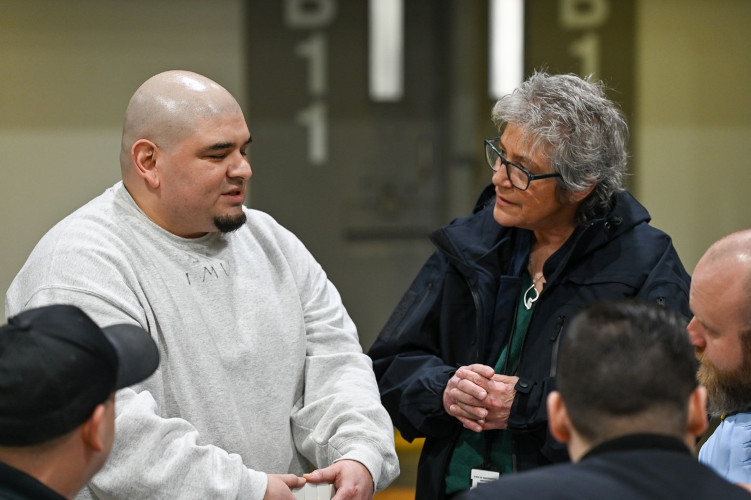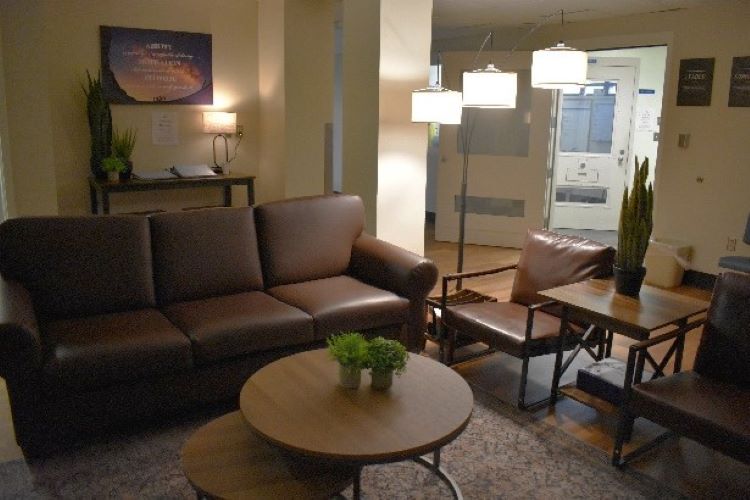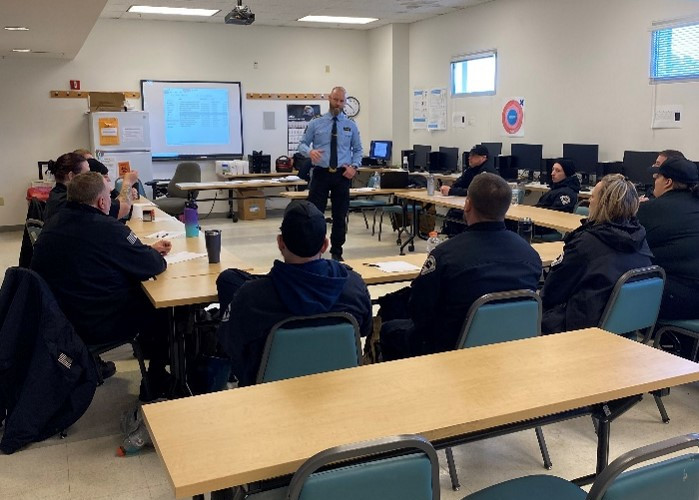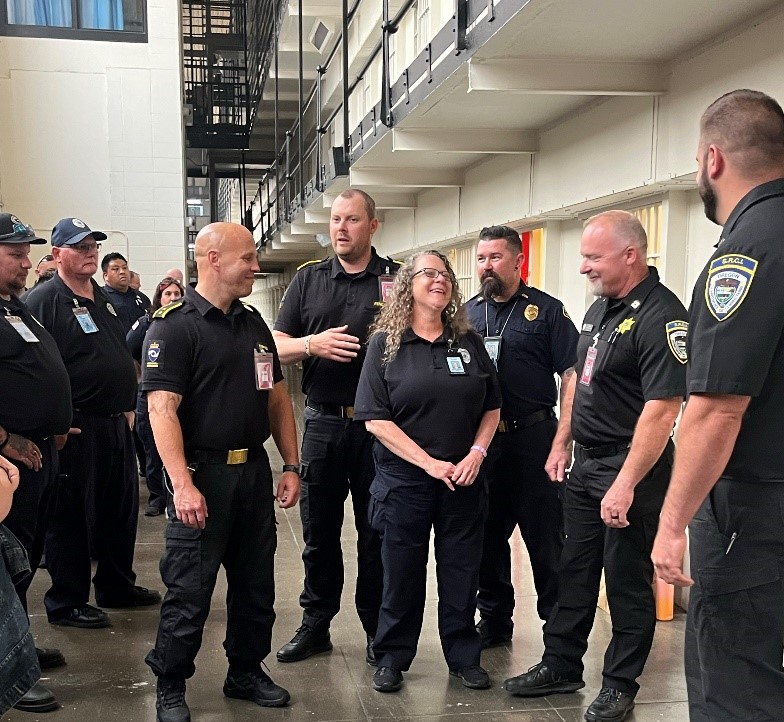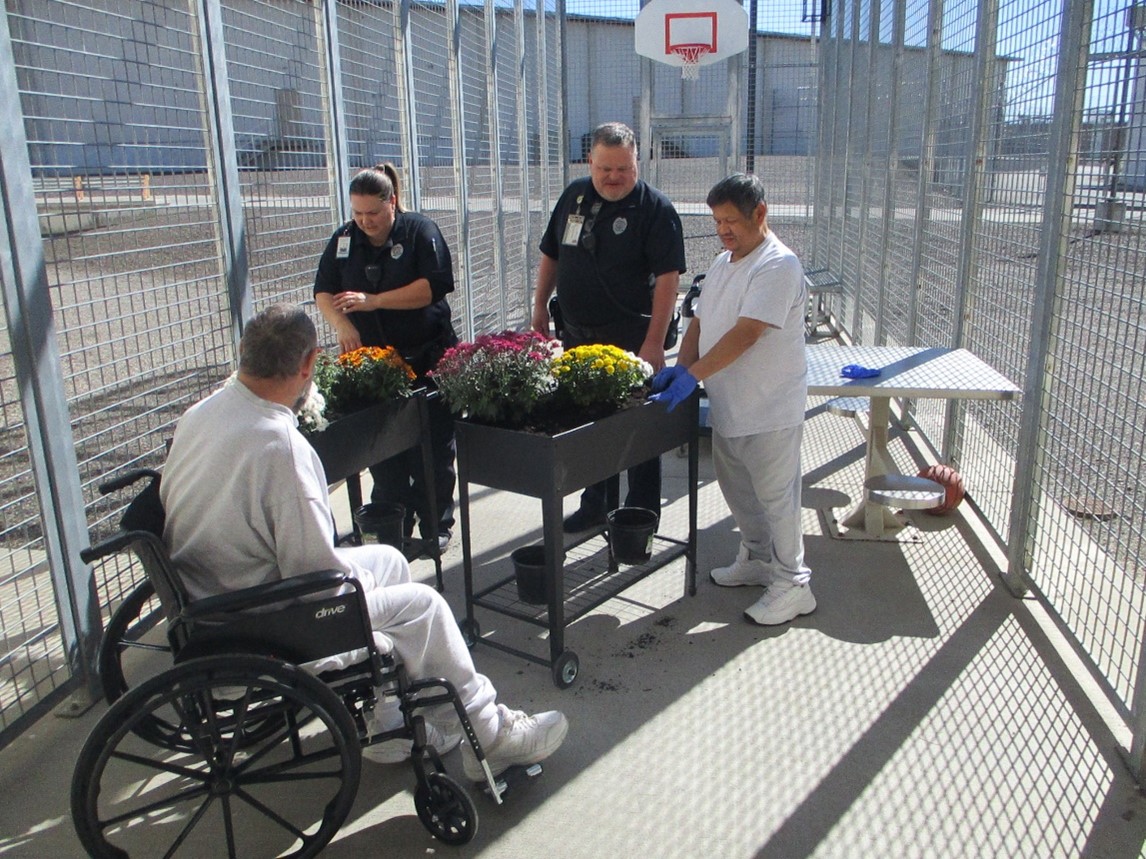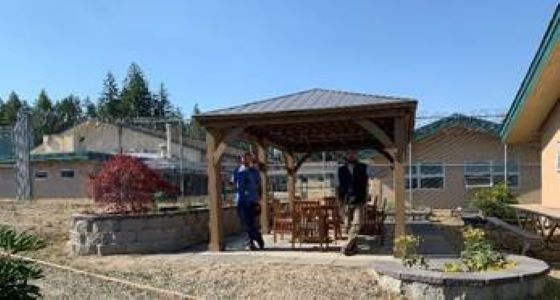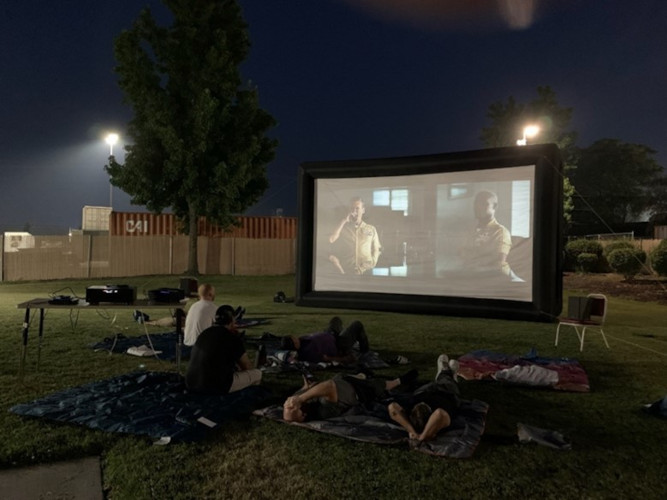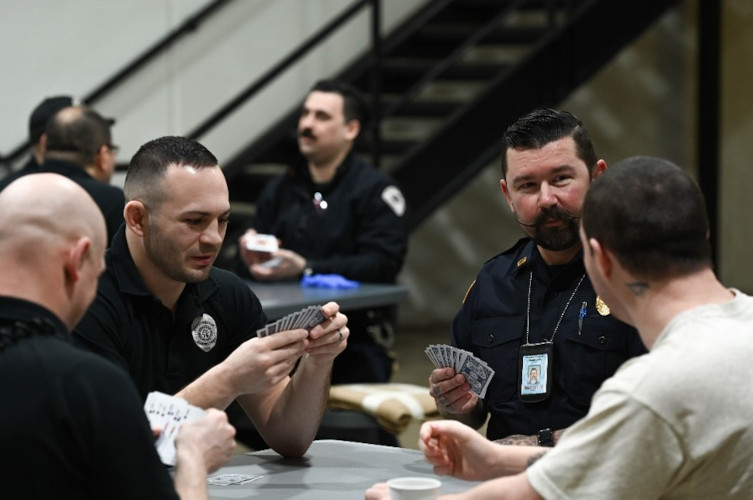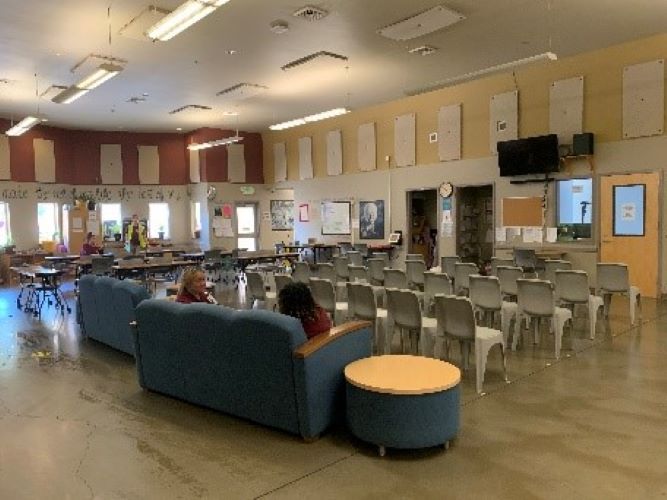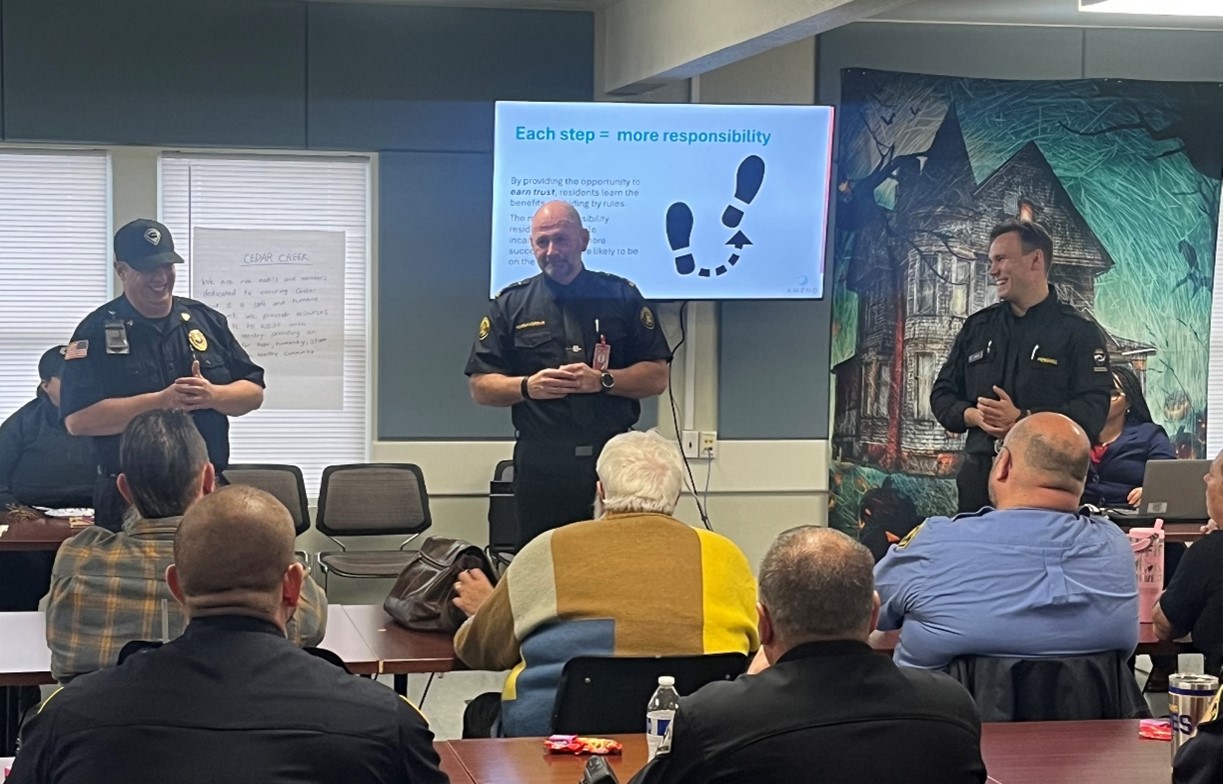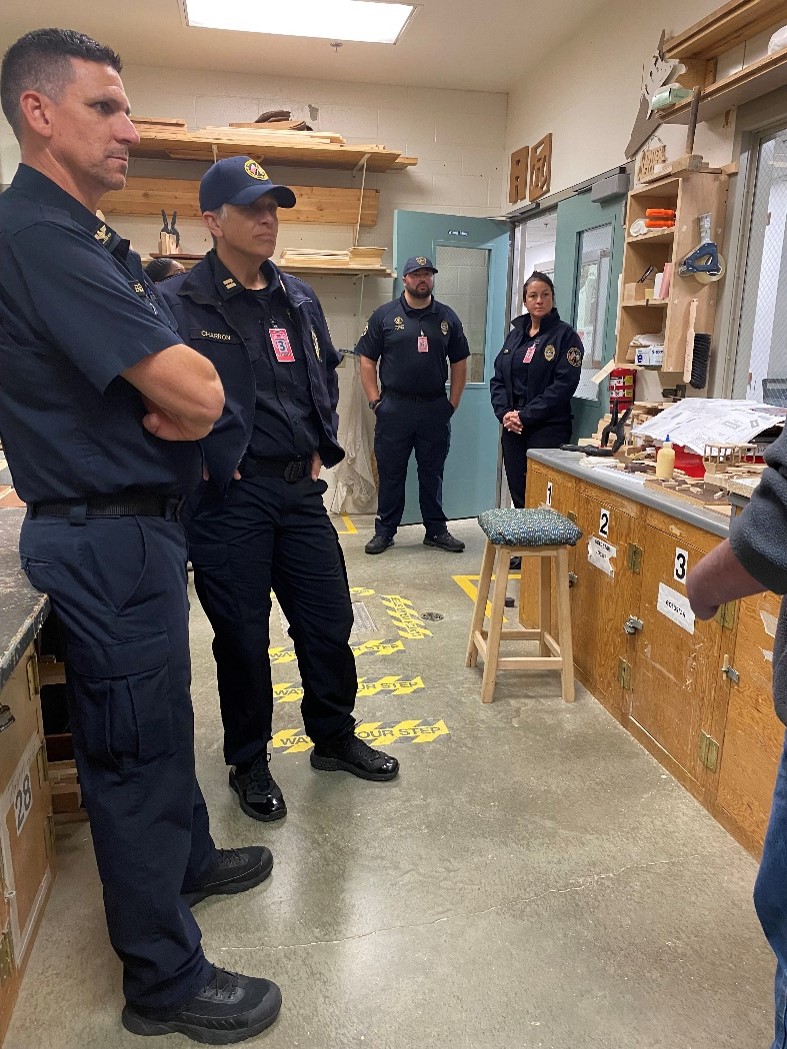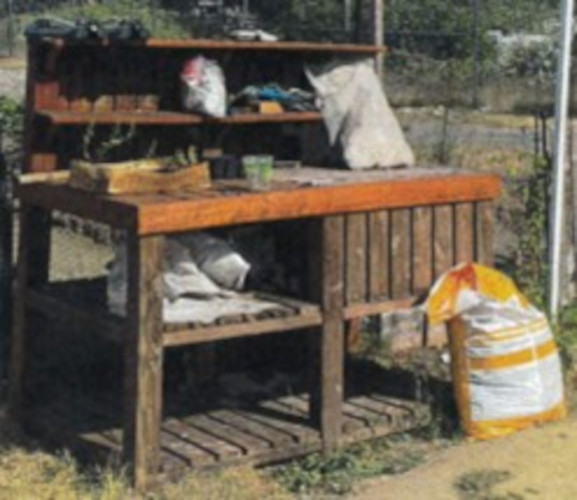The Washington Way program is a partnership between the Washington State Department of Corrections (DOC) and Amend at the University of California San Francisco to bring a health-focused approach to transforming correctional culture within Washington's prison facilities and reentry centers.
About
The Washington State Department of Corrections (DOC) and Amend at the University of California San Francisco have partnered to bring a health-focused approach to transforming correctional culture inside Washington's prisons and reentry centers with an emphasis on increasing staff wellness while working to better support and prepare incarcerated individuals and residents for their return to society. Amend's primary program partner is the Norwegian Correctional Service, which operates under the philosophy that “people go to court to be punished and go to prison to become better neighbors.” Amend also partners with a growing community of leading prison services – including those in Iceland, Sweden, Scotland, Ireland, and England – to adapt global best practices aimed at reducing harm in U.S. prisons.
In addition to Amend's partnership with the Washington DOC, they have also partnered with the DOCs in California, Oregon, Connecticut, and North Dakota and have conducted targeted consultations with other state DOCs, including those in Maine, Hawaii, Idaho, New York and Rhode Island. This growing network of corrections professionals fosters peer support and continuous learning across states. Corrections staff nationwide recognize that while international prison systems may differ in many ways, there are valuable principles and proven models to draw from and adapt to fit local needs. Washington State's initiative, The Washington Way: Humanity in Corrections, embodies this journey of transformative correctional practices.
Research shows that U.S. prisons often negatively impact the physical and mental health of both incarcerated individuals and correctional staff. The DOC is dedicated to changing this trend by fostering a positive and healthy organizational culture – one that supports rehabilitation and successful reintegration into society. We are empowering correctional staff to engage more actively with incarcerated individuals, creating opportunities for meaningful change in their lives.
Through new approaches that strengthen collaboration between staff and incarcerated individuals, we aim to enhance public safety and build positive rapport, fostering environments that reduce criminal behavior.
The Washington Way builds on proven international best practices to transform our correctional culture. By improving living and working conditions for all residents, staff and visitors in our state prisons, we are committed to a supportive and effective work environment.
Though Norway and Washington differ, the essence of their approach aligns with ours: by treating each other with respect, we create an environment that drives positive change.
Data & Evaluation
National data on the negative impacts of the current correctional environment reveals:
- One in three correctional officers experience symptoms of Post-Traumatic Stress Disorder (PTSD).
- One in 10 correctional officers have considered suicide.
- Compared to the national average of age 75, the average life expectancy of a U.S. correctional officer is 59 years old.
- There are also higher rates of substance use disorder in the field of corrections compared to national averages.
- Incarcerated individuals in the U.S. experience more illness than those who are not incarcerated.
University of California – Irvine
Building on their longstanding partnership with the DOC in evaluating restrictive housing reforms, University of California (UC), Irvine Professor Keramet Reiter and her research team are conducting an independent evaluation of Amend's impact within the Washington DOC. The UC Irvine team has collected baseline data on staff and resident well-being, awareness of Amend, and responses to Amend interventions. They will continue collecting follow-up data every 3-6 months on at least three specific Amend interventions across three prison sites, in addition to analyzing administrative data on restrictive housing use and system-wide well-being.
The Washington Way Principles
Three Types of Security
Static security consists of the physical aspects of a prison, like walls, doors, uniforms.
Organizational security involves routines, shift plans, and daily procedures that ensure consistency and predictability.
Dynamic security is the frequent, respectful communication between correctional staff and residents, contributing to the safest prisons. Staff practicing dynamic security build professional relationships with residents and are invested in their success, motivating positive behavior while maintaining professional boundaries.
Normalization
Normalization means that life inside prison should resemble life outside of prison as much as possible. A more normal daily environment helps resident prepare for reentry and creates a healthier workplace for staff. Under normalization, each incarcerated person serves their sentence at the lowest appropriate security level, with everyone working to foster a supportive and healthy environment. This can include improving living and working conditions or creating innovative programs that allow residents to practice being a positive, responsible member of their community.
Progression
Progression ensures that incarcerated individuals understand the steps needed to achieve success during their time in prison. They can earn trust, privileges, and greater responsibilities (such as jobs, education, and mentorship) that contribute to the community. For staff, progression provides meaningful opportunities to engage with motivated incarcerated individuals who are working toward positive change.
Goals
The mission of DOC is to enhance public safety by positively transforming lives. Achieving this means prioritize the health and wellness of our staff and those in DOC custody. We need to proactively build healthy interactions among staff and between staff and incarcerated individuals. Amend provides guidance on:
Staff and Resident Wellness: Enhancing work environments through training and facility improvements to reduce trauma and stress for all individuals within the system.
Public Safety: Preparing residents to be better neighbors as they reintegrate as engaged family members and neighbors, thereby reducing recidivism and promoting community safety.
Trauma-Informed Organization: Reducing incidents of use of force, staff assaults, overdoses, self-harm, and other crises by building a supportive, trauma-informed environment.
Staff Training and Professional Development
- Training in dynamic security, normalization, and progression for all prison and Reentry Center staff
- Occupational health and wellness training
- Trauma-informed care training
- PREA-specific training
- Immersive job shadowing with domestic DOCs and international partners
Creating Positive Environments
To normalize prison environments, staff may implement activities and environmental improvements that mirror the outside world and encourage healthy interactions, such as:
- Barbeques, fitness equipment, and social games
- Bicycles
- Comfortable furniture and green spaces Couches and furniture in living areas
- Regular staff-resident activities like sports and music
- Murals, painting, and landscaping to enhance surroundings
Process Improvements and Policy Changes
The DOC is actively exploring and implementing process and policy changes to support culture transformation.
Annual In-Service training
The Department has developed additional training to be included in the Fiscal Year 2025 training plan. This session is four hours in length and works to build on skills put forth in previous sessions. The focus of this year's training will be on strategies related to building rapport with incarcerated, with an emphasis on helping staff self-identify appropriate interactions through their behaviors. The course aims to build an understanding of progression and normalization in the Department's continued effort to build meaningful relationships between staff and incarcerated individuals.
Washington Way Initiatives
Change Agents: a staff person who is motivated to support culture change efforts at their facility, voluntarily attend additional training, and are encouraged to submit staff proposals presenting solutions to common challenges experienced by their colleagues and residents. Founded at Washington Corrections Center for Women by line level staff members wanting feedback on a culture change initiative they were proposing, the Change Agent group was established. Change Agents are staff that are motivated and engaged in improving their working environment and supporting positive culture through staff-led efforts that have an effect on wellness for both staff and residents. There are Change Agent Groups at:
- Clallam Bay Corrections Center
- Cedar Creek Corrections Center
- Coyote Ridge Corrections Center
- Monroe Correctional Complex
- Washington Corrections Center for Women
- Washington State Penitentiary
Cell to Cell Virtual Exchange Program: This collaboration was brought forward by staff and incarcerated at Stafford Creek Corrections Center. Cell to Cell is a virtual exchange program that brings incarcerated individuals and staff members from Norway and the United States together over video chat. This offers staff and incarcerated individuals a space to share life experiences, offer support, learn about each other's cultures, and discuss what it's like being incarcerated in their countries. This opportunity is the first of its kind to be done on a worldwide scale. Currently Cell to Cell is operating at:
- Stafford Creek Corrections Center
- Washington Corrections Center for Women
Contact Officer/Staff: Contact Officers/ Staff are mentors and coaches that encourage pro-social behaviors, provide advice and direction, and support residents to change their lives for the better through their continuum of reentry. Contact Officer Teams help change DOC culture from an enforcement mentality to a coaching/mentoring mentality.
A Contact Officer is a correctional officer or staff person who is assigned to a small number of incarcerated individuals to support their success and prevent problems before they arise. The Contact Officer might connect incarcerated individuals to resources and opportunities, support them as a coach, mentor, and role model, or create events or small projects that make their housing unit a better place to work and live. The Contact Officer has more tools to hold incarcerated individuals' accountable because they are empowered to make important decisions in their unit and can create meaningful opportunities for the population they're working with. The Contact Officer model is flexible and adaptable; the specific role of a Contact Officer should differ from unit to unit and prison to prison based on participating staff's strengths, opportunities, and goals. Currently we have Contact Officers/ Staff at:
- Stafford Creek Corrections Center
- Washington Corrections Center for Women
- Washington State Penitentiary
Facility Onboarding and Washington Way/Amend Workshops: The Washington Way team alongside Amend, International Trainers, and Washington Way Champions work together to teach department staff about the Washington Way, Amend, the foundational principles and models, and how line level staff can be supported by leadership to transform their facilities and have a positive impact on their working environment and the living environment for their residents. Facility Onboarding and/or the Washington Way Workshops have occurred at:
- Clallam Bay Corrections Center
- Cedar Creek Corrections Center
- Coyote Ridge Corrections Center
- Monroe Correctional Complex
- Stafford Creek Corrections Center
- Washington Corrections Center for Women
- Washington State Penitentiary
- All Reentry Centers
Facebook Podcast: A resident and staff led initiative that seeks to create a new Washington Way Podcast which will give a voice for Stafford Creek Correction Center residents. The men of this proposal seek to create a transparent, engaging, and professionally produced podcast that will promote Washington Way, cultural groups, programming for the incarcerated, clemency, culture change, and other topics brought forth from staff and residents within Stafford Creek Correction Center.
- Stafford Creek Corrections Center
Immersive International Training
Amend (UCSF) philanthropically funds international immersion programming, providing opportunities for correctional professionals and interested parties to job shadow peers in leading prison systems such as those in Norway, Scotland, Northern Ireland, and England.
Normalization Efforts (Environmental & Relational): Normalization means that life inside prison should resemble life outside of prison as much as possible. A more normal environment and daily life better prepares people for reentry and helps makes sure that the prison environment is not harmful to the people who work there. Normalization can cover anything from improvements to the living and working environment to events that engage the residents in a more normal capacity where they can practice being a positive, responsible member of their community better preparing them for reentry.
- Stafford Creek Corrections Center
- Washington Corrections Center for Women
- Washington State Penitentiary
- All Reentry Centers
Prison Rape Elimination Act Task Force
In partnership with Amend, PREA Compliance Specialists established a task force focused on clarifying PREA policies. The task force aims to provide clear definitions of PREA violations and support staff in understanding these policies. Additionally, the task force works to implement policy changes that align with dynamic security principles, fostering safe interactions between staff and incarcerated individuals.
Resident Advisory Council: The resident advisory council came together at Stafford Creek Corrections Center to create change within the community inside the facility. This is a group of residents outside of the tier rep group who meet to focus on creating change for the betterment of the community for staff and residents. Their mission statement “The purpose of the RAC is to advance a safer, healthier, more engaged, and an empowered living and working environment at Stafford Creek. The RAC strives to transform prison culture by identifying harmful policies and practices, that do not meaningfully support rehabilitation, promote health and wellness, or contribute to successful reentry.” The Resident Advisory Council is currently only in place at:
- Stafford Creek Corrections Center
Resource and Activity Teams: Focused on the highest-risk, highest-need incarcerated individuals, these teams work to increase residents' out-of-cell time and engage them in positive and meaningful activities. These targeted interactions are designed to support and accelerate safe transitions from restrictive housing into less restrictive environments, and ultimately, back to the community. Because restrictive housing units are harmful to those who live and work in them, empowering staff to facilitate these safe transitions promotes the health and wellbeing of residents and staff, while also providing staff with a meaningful and safe mechanism to facilitate progression. Resource Teams are based in a restrictive housing units, while Activity Teams move throughout the prison, assisting residents who self-isolate or need extra support to avoid restrictive housing. Currently we have Resource/ Activity Teams at:
- Clallam Bay Corrections Center
- Stafford Creek Corrections Center
- Washington Corrections Center for Women
- Washington State Penitentiary
What facilities are we currently in?
Reentry Centers
- Bellingham Reentry Center
- Brownstone Reentry Center
- Eleanor Chase Reentry Center
- Helen B. Ratcliff Reentry Center
- Longview Reentry Center
- Olympia Reentry Center
- Reynolds Reentry Center
- Wenatchee Valley Reentry Center
Prisons
- Clallam Bay Corrections Center
- Cedar Creek Corrections Center
- Coyote Ridge Corrections Center
- Monroe Correctional Complex
- Stafford Creek Corrections Center
- Washington Corrections Center for Women
- Washington State Penitentiary
Resources
For more information on The Washington Way program, see the resources below:
Publications
- Amend: Changing Correctional Culture Handout 500-GU016
- Amend Stories
- Amend Stories: Jorrell Hicks 500-GU036
- Amend Stories: Kabrina Riley 500-GU040
- Amend Stories: Mr. Gomez 500-GU038
- Amend Stories: Superintendent Charlotte Headley 500-GU037
- Evaluation of Amend in Washington Department of Corrections 400-RE009
- The Washington Way 500-GU017
- The Washington Way – CORE Flyer 400-PS023
- The Washington Way – Fact Sheet 500-GU035
- Washington Way Impact Report 400-RE008
- Washington Way Resource and Activity Teams 400-RE007
- Staff Wellness Resources Flyer 800-GU004
Resource Links
Department of Corrections
- Amend: Creating Better Neighbors
- Amend: Improving Washington's Correctional System for Staff & Incarcerated
- Amend: University California Irvine Independent Evaluation
- The Department of Change: Amending Reentry for All
- Mission & Vision
- Prison Facilities
- Reentry Centers
- Washington Corrections Center for Women (WCCW)
External
- Amend at the University of California San Francisco
- Can Washington prisons change the culture of corrections? (by Joseph O'Sullivan - Crosscut)
- How Norwegian prisons prepare incarcerated individuals to become better neighbors (Governor Jay Inslee – Medium)
- I struggled to help a prisoner. In Norway, I found a better way (by Toby Tooley as told to Maurice Chammah – The Marshall Project)
- Norwegian Correctional Service
- The California Model
- The Oregon Way
- 'Time to become me again': What can America learn from Norway’s prisons? (by MaryAnn Curl, MD, MS – Corrections 1)
- WA prisons sent 100 staffers to Norway. The goal: A humane system (by Nina Shapiro, Seattle Times)
-
Washington Way offers path to recovery, reintegration in Wenatchee (by Matthew Carnero-Macias, Wenatchee World)
- Wenatchee Valley Reentry Center to open Thursday, Inslee to attend
Podcasts/Interviews on WA DOC & Amend
- Fixing Prison Culture the Scandinavian Way (Crosscut)
- How WA is putting a Norwegian spin on its prisons (by Brooklyn Jamerson-Flowers & Patricia Murphy – KUOW-NPR) (13 minutes)
Videos
- Amend: Creating Better Neighbors
- Amend: Improving Washington's Correctional System for Staff & Incarcerated
- Programming with Purpose: Jorrell's Story
- Washington's Way Forward: Reentry Centers Reimagined



